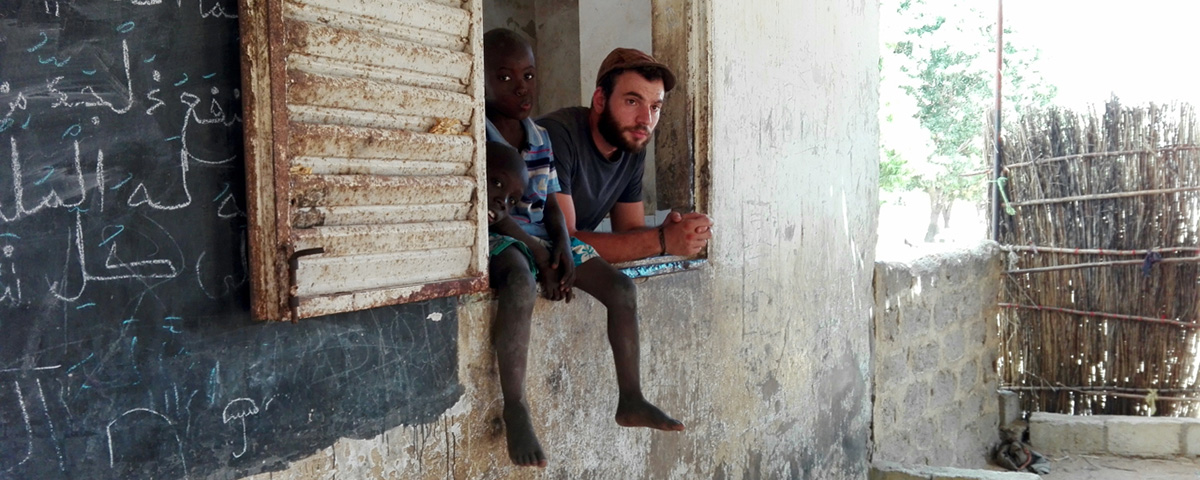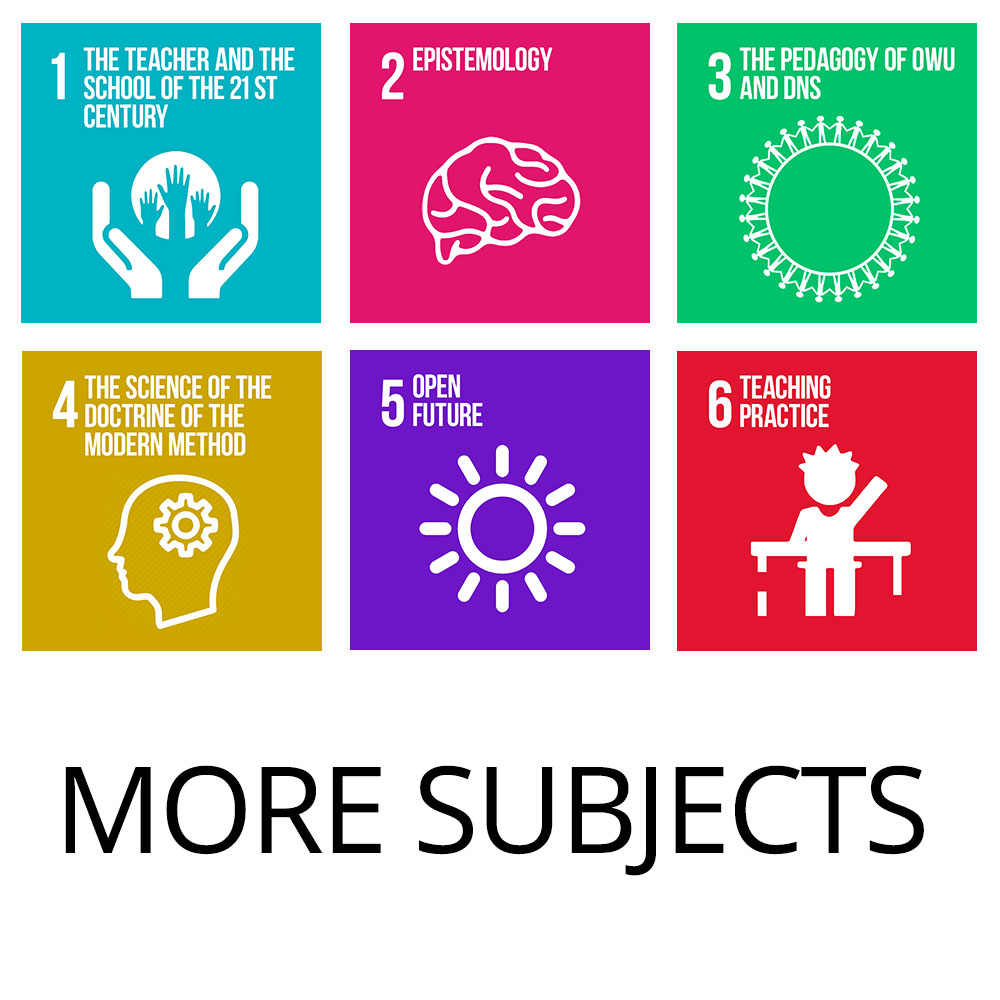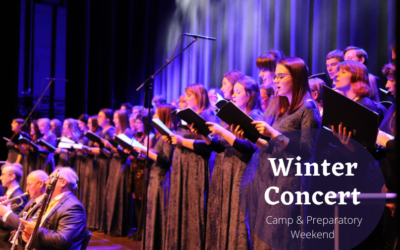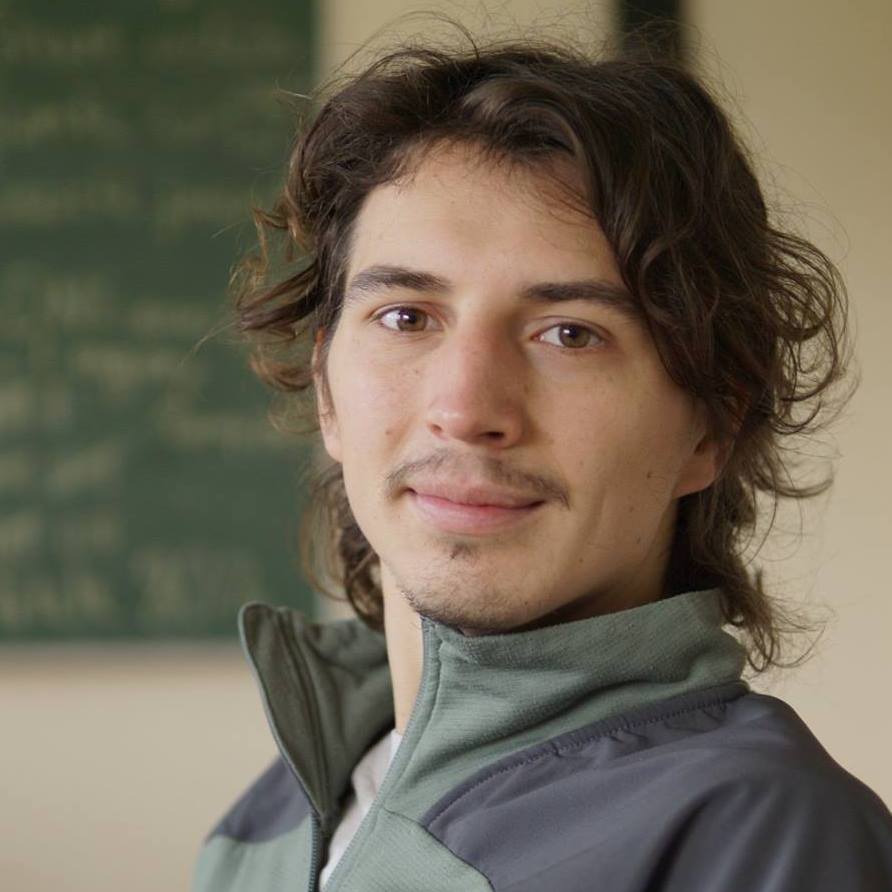
Curriculum · Bachelor of Pedagogy
Description of academic subjectsSubject:
The Science of the Doctrine of the Modern Method
[DMM] Hours: 250 ECTS: 11 Exam: in 3rd Yr
Study modules in the 1st year (50 hours), 2nd year (100 hours) and 3rd year (125 hours).
In the modules, students will:
- acquire knowledge about learning styles, which will lead you to the knowledge of teaching
- learn how to plan, conduct, and evaluate lessons
- consider how learners’ abilities and other relevant circumstances must influence your teaching methods
- master the DMM teaching method, which will support you along the way in this and all other subjects

More about the subject
The many names of Didactics
Formally, a methodology of teaching or, as most prefer to understand the concept, the methodology of teaching, is called didactics.
Formally, didactics can mean both the science of teaching and the profession of teaching, both what teaching is philosophically seen and what teaching, or the teacher, is and does practically.
We have many names for the things we cherish, and this certainly also goes for the science of teaching. Depending on which school of language dominates the moment and location, you read about the Philosophy of Education, the Philosophy of Teaching, the Philosophy of Pedagogy, the Science of Pedagogy, and in comes the sometimes buzzword of Didactics.
If you want to go Greek, “didaktikos” is the local word for teaching.
What we are saying is that all these concepts for teaching according to the users mean something very distinctive, but really, all mean “to teach”. From there comes a teacher, teaching, and to DNS also comes as a natural, as a twin and not as an addition, to learn, learning. Teaching and learning go hand in hand.
A crankshaft of pedagogy and method
At DNS we use the science of the Doctrine of the Modern Method as our crankshaft, around which a rich methodology turns, and inside which a rich tapestry of content beautifies teaching and learning, while our programs with their periods, shaped by extraordinary depth and elegance, are constructs from which new knowledge streams because of it all.
Here we shall therefore only stress the fact that becoming a student of the Doctrine means both going through its roots and using available Doctrine material, and it also means creating new material yourself.
The roots of the Doctrine are to be found in our philosophy of pedagogy with its many dialectics, for example
- dialectics between hand and mind (practice and theory)
- dialectics between studying from written sources and studying while travelling
- dialectics between lectures from the lectern and investigative studies in the field
- dialectics between principles and practice
There are also aspects within the sciences of psychology and sociology and natural sciences. Of course, one of its roots is language, another is communication, and yet another is fieldwork as part of ordinary training.
A conflux of understandings and practices
We operate with three understandings of teaching and learning
- the science and the profession of teaching (aka didactics)
- how to teach in general, covering all kinds of themes and educational projects
- how to teach in relation to specific subjects
There is a 4th and very important aspect: You learn about and learn to creatively handle, also on a practical level, the new science of the Doctrine of the Modern Method.
To our understanding at DNS, all four parts should be understood as a conflux, without giving preference to any of these four streams of the science of cognition meeting, merging and flowing together into the hearts and minds of students and teachers.
You teach, you learn, you consider and you practice. By means of the conflux you develop general and important qualities and skills of teaching.
The students are center stage at school
“All your teaching and acts are directed at making these student human beings learn and thrive and develop as persons. Your success as a teacher is not measured by how perfectly you had or have prepared the lesson and explained a certain issue, but by the light of amazement and life in the eyes of the students, because they got your point and love your teaching.”
Pedagogical principle: First you enliven, then you enlighten
“It does not matter how important the subject matter is, if you as teacher do not manage to make the students interested and alert, and on their toes to learn something new. A precondition is that the teacher really finds the lesson indispensable and is enthusiastic about it.”
Creating a productive and inclusive atmosphere
“Learning is promoted by an atmosphere of ‘one for all and all for one’, and it is up to the teacher to create an environment that is both friendly and open, yet at the same time orderly and productive, where the students can thrive and help each other, get down to the serious business of the contents and have lots of fun and excitement as well.”
Connecting the content to the real world
“Whether you are teaching mathematics, language or biology, the more you can connect it to real life and make the knowledge relevant and a useful tool for the students, the more they learn and the more eager they are to learn. When mathematics and biology are taught and learned in connection with the school’s garden farm, the subject matter becomes part of real life, and it becomes important. When students make a pamphlet about how to grow your own organic vegetables, meant for the public, it becomes necessary to master the language and use the right words.”
Choosing methods that make the students the driving force
“Even though computers are not available for all students, it is in many subjects and lessons possible to use the Doctrine method in an adapted form. Instead of preparing study tasks digitally, the teacher uses the Doctrine formula on paper – writing title, wording, introduction, directives and adding files, and in a language suited to the student group.
Also DMM Courses and Experiences are applicable on paper. All kinds of relevant, interesting and inspiring methods can be included in the DMM way of teaching and learning, such as excursions, theatre plays, inviting guests, building a school zoo, going on investigation and much more.”
Producing end-results
“Often, teaching ends when a manual or another book about the subject matter ends. But when you learn – and learn how to teach – the DMM way, the Doctrine will again and again demand from you by means of its Directive a visible end-result. The Directive asks from you to prove a result.
This might be a huge task, such as a thesis, or it might be a small result in quantity but important in quality, such as arguments made public during a debate. Giving proof of having understood a text, making a series of events or producing a written compendium is also proof of end-result. You learn more when you follow the directive. If a directive does not ask for an end-result, you may put the demand on yourself. Proving learning is an art, it is a craft and it is an inspiration, often throughout the whole study task, experience or course.”
Promoting the collective as well as each student
“In order for your teaching to succeed and for your students to learn as much as possible, a communal attitude and spirit is necessary. It is the whole class together, with you as the teacher, that can help each other and secure that everybody learns and thrives, and it is our whole DNS community that together can lift big tasks. It is also in the middle of such an environment, shoulder to shoulder and with an open and engaged attitude towards the other, that there is room for the individual student to develop and change.”
While you study and train within the Doctrine field, you learn to learn, you learn to teach and you become knowledgeable to an extent bordering on becoming wiser. What we suggest to you is to act creatively within the Doctrine and the possibilities it offers.
The big part of this subject – or anchor theme – lies with the Doctrine fields connected to each period. You must do them all, and you must realise that you must also create new study tasks, experiences and courses. By digging deep into the Doctrine and learning by heart and practicing by excellence, you train as a scientist of the Doctrine.
A no limit experience
Working with the Doctrine is a no limit experience, and it offers generously knowledge, new knowledge and knowledge processing within its structures. Within, you will experience a contradiction between studying the Doctrine way and studying any other way, and you may become somewhat confused or taken aback, or even provoked, by the discipline of the Doctrine.
If you are among the hundreds of thousands who believe in studying as a freewheeling lifestyle-process, you will be in for a sudden awakening. The science of the Doctrine uses scientific model approaches, with its directives often functioning as hypotheses, while obeying them leads to clarification of the issue at hand to any which side of the argumentation.

is blended with hands-on experiences.
We emphasise a learning by doing approach
and practice community living.
Our aim is to train progressive teachers who can respond to the challenges of our time.
Curriculum subjects
Pedagogical Science
- The Teacher and the School of the 21st Century
- Epistemology
- The Pedagogy of OWU and DNS
- The Science of the Doctrine of the Modern Method
- Open Future
Teaching Practice
- Teaching Practice
Geography
- The African Continent
- Contemporary Europe
Social Science
- Big issues of Our Time
- The Future of Europe
- Fighting With the Poor
- The World of Politics
Nature & Technique
- Mastering the Material World
- Horticulture · Good cooking
- Lifestyle Sustainability
History
- The History of the World
Arts
- The World of Arts
English
- Mastering Languages
Media & Communication
- Bringing it to the Public
Specialisation
- Specialisation
Thesis
- Bachelor Monograph

thankyou learn more meta
Thank you!You should get a booking confirmation over email.Meanwhile, feel free to explore our blogThank you!You should get a confirmation over email.Meanwhile, feel free to explore our blog
Winter Concert · January 2024
We are looking for volunteers to help us organise a big music event at the end of January!
Course: The Cuban Literacy Campaign
The Cuban Literacy Campaign and the participation of women in the campaign significantly impacted the Cuban patriarchal culture at a crucial moment. In other words, though a male-led revolution did not give women the space to organise against patriarchy, rather by actively participating in the revolution, women helped change the nature of Cuban patriarchy today.

Keep in touch
The Necessary Teacher Training College ,
Skorkærvej 8, 6990 Ulfborg, Denmark




